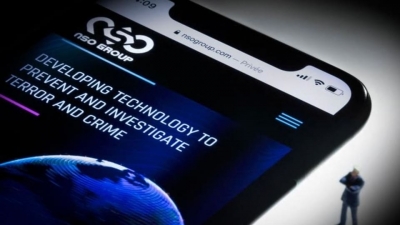
Last year on July 13, a row erupted over Israeli spyware Pegasus allegedly being used for targeted surveillance on a host of public figures in India.
Pegasus is a type of hacking software sold by Israeli surveillance company, NSO Group. It is said that the spyware is capable of extracting data from phones and can infect devices without the knowledge of users. According to reports, Paris-based media non-profit Forbidden Stories and Amnesty International accessed a leaked database of thousands of phone numbers targeted by Pegasus across the world. It was said to contain data of government clients of Pegasus since 2016. The data was shared with global media groups as part of a collaborative investigation called Pegasus Project. Subsequently, on October 27, the Supreme Court directed a panel of technical experts to investigate whether the government used military-grade Pegasus spyware to monitor politicians, activists, tycoons, judges and journalists.
More authoritarian countries frequently claim journalists, dissidents and human rights activists are criminals or a national security threat making them worthy of intrusive surveillance.
And in many of those countries there is limited or no accountability and oversight on how the powerful capabilities are used.
The spread of encryption has increased the drive for governments to get inside people’s devices. When phone calls were the main means of communication, a telecoms company could be ordered to wiretap the conversation (which once meant literally attaching wires to the line).
But now the conversations are often encrypted, meaning you need to get to the device itself to see what was said. And devices also carry out a much richer treasure trove of data.
In the past, ransomware – in which hackers demand a payment to unlock access to your system – was the province of criminal networks. It is now sold as a service on the dark web.
An individual can simply agree a deal to give them a cut of the profits and they will hand over the tools and even offer support and advice, including helplines in the case of problems.
Other techniques – like location tracking and developing profiles of people’s activity and behaviour – which once required specialised access and authority are now available freely.
Credit : BBC
Picture Credit : Google




